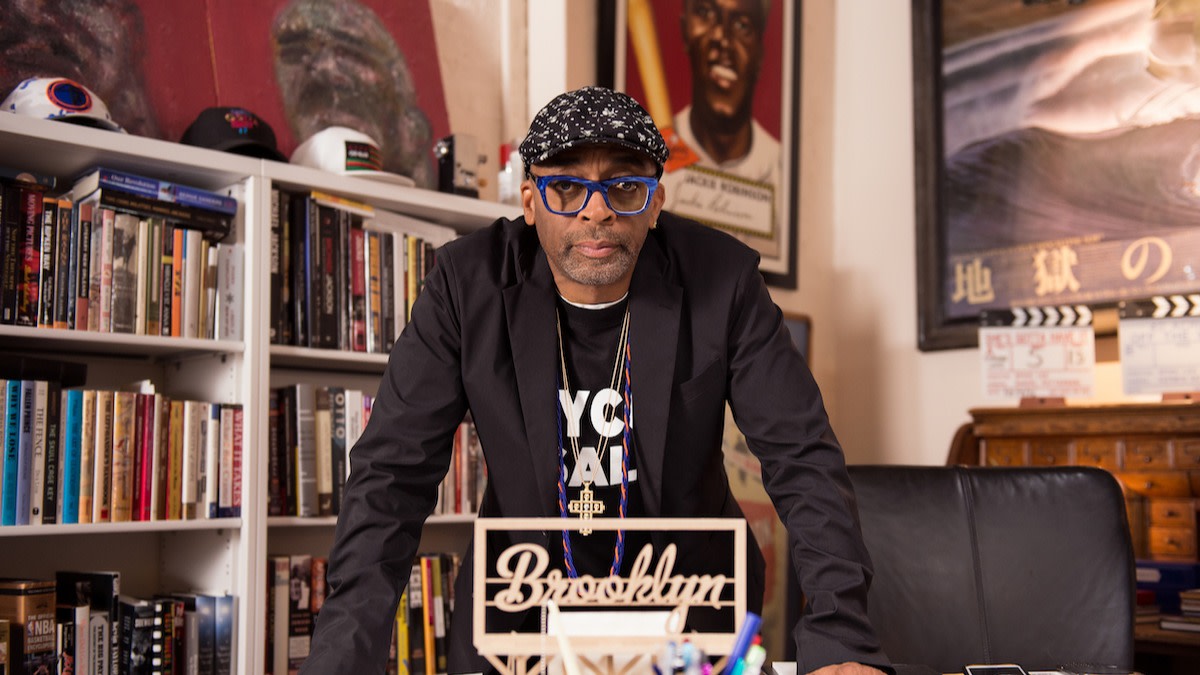Spike Lee’s 5 Tips for Finding Inspiration as a Screenwriter
Written by MasterClass
Last updated: Aug 19, 2021 • 4 min read
Great movie ideas can come from anywhere but having a process for developing them can help elevate your best options over those with less potential. Use these tips from Academy Award–winning director Spike Lee on how to find inspiration for your next screenplay.
Learn From the Best
A Brief Introduction to Spike Lee
Spike Lee first captivated our cultural consciousness in 1986 with his debut film, She’s Gotta Have It, a story about a sexually empowered woman in Brooklyn and her three lovers, told in black and white. Over his long and varied career, Spike has often drawn from the well of his own life, which encompass everything from historically Black colleges and universities, colorism in the Black community, culture clashes in Brooklyn, love and jazz, interracial relationships, and addiction. Spike Lee continues to make movies—and make moves: In 2010, the Library of Congress selected Malcolm X for preservation in the National Film Registry and his most recent film is 2020’s Da 5 Bloods.
Spike Lee’s 5 Tips for Finding Inspiration as a Screenwriter
Here are some of Spike’s key tips for finding inspiration in your own filmmaking.
- 1. Immerse yourself in a subject. Spike believes that research is a fundamental part of the screenwriter’s job. His approach is to immerse himself in the time period—he listens to the music of the time, reads books and magazine articles, and watches documentaries. When Spike embarked on the BlacKkKlansman project—a story about a Black man who infiltrated the Klu Klux Klan in the 1970s—he and his co-screenwriter Kevin Willmott immersed themselves in the 1970s. They studied the Vietnam War, the Black Power movement, and the Civil Rights movement, making sure that they knew their material front to back.
- 2. Write about what you know. Many of Spike’s earliest feature films were inspired by his personal experience. She’s Gotta Have It originated from conversations he and his friends had about women. School Daze was reminiscent of his college days at Morehouse College and Clark Atlanta. In Do The Right Thing, Spike recalled a time in New York City when race relations were at a fever pitch, particularly between African Americans and Italian Americans. He knew versions of those characters growing up in Brooklyn—how they spoke, their mannerisms—and recognized the growing cultural tension. Stories that originate from your own life will often be the ones about which you’re most passionate and know intimately. Let this passion carry you through the tough but rewarding task of taking your film from conception through to completion.
- 3. Write for the present day. If you’re telling a story based on real-life events, as Spike did with Malcolm X, remember your audience. You want your audience to make the connection between the period you’re depicting and today so that it has urgency. Humor is a powerful tool that can help you make this connection; don’t be afraid to use it if it’s there and it feels natural to do so. Endeavor to make your story more than just a history lesson.
- 4. Find stories that speak truth to power. One of Spike’s all-time favorite movies is 1954’s On the Waterfront, directed by Elia Kazan and starring Marlon Brando. Spike uses this work as an example of how movies can operate as a kind of activism. In the film, Marlon Brando’s character, Terry Malloy, is a longshoreman who testifies against a corrupt mob-controlled union and is shunned for this betrayal. Spike draws a strong parallel between this story and the plight of former NFL quarterback Colin Kaepernick who, after first taking a knee in 2016 to protest racial injustice and police brutality against Black people, has been vilified by the president and locked out of the NFL. That a film made in the 1950s can be a metaphor for modern-day events is the mark of an enduring human story and the power of the craft of filmmaking.
- 5. Write films that have a realistic chance of getting made. Don’t let finances limit you as you brainstorm script ideas, but as you push beyond loglines and into actual scriptwriting, it’s worth thinking about whether you’re embarking on a movie that could actually get made. Before Spike writes a word of his script, he takes into consideration how much money he can raise to make the movie. He writes his scripts with that in mind. If you have a story idea for a film that you can’t realistically shoot at this moment, shelve it until you can raise the money needed to make it. Or, be ready to make compromises that will allow you to make the film for a realistic amount of money.
Learn More
Become a better filmmaker with the MasterClass Annual Membership. Gain access to exclusive video lessons taught by film masters, including Spike Lee, Shonda Rhimes, Jodie Foster, David Lynch, Martin Scorsese, and more.
